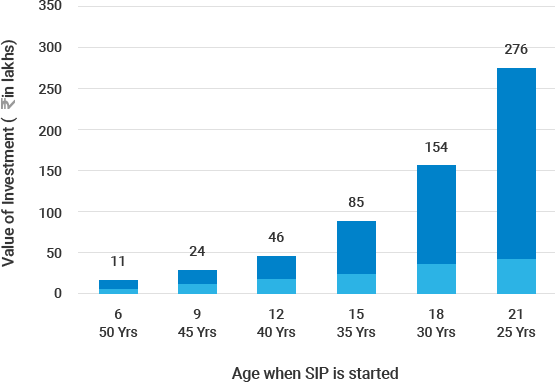- Welcome to VPN Fincap
- +91 9917291024
- customersupport@vpnfincap.com
- | AMFI Reg. MF Distributor | ARN- 176286 |
What is SIP?
A Systematic Investment Plan (SIP), more popularly known as SIP, is a facility offered by mutual funds to the investors to invest in a disciplined manner. SIP facility allows an investor to invest a fixed amount of money at pre-defined intervals in the selected mutual fund scheme. The fixed amount of money can be as low as Rs. 500, while the pre-defined SIP intervals can be on a weekly/monthly/quarterly/semi-annually or annual basis. By taking the SIP route to investments, the investor invests in a time-bound manner without worrying about the market dynamics and stands to benefit in the long-term due to average costing and power of compounding.
How does SIP work?
A SIP allows you to invest a set amount of money over a set period. You can buy a set number of fund units with this amount. Market timing can be dangerous since one can make a mistake and invest at the wrong time. This element of unpredictability is removed with SIP investing.
You can select to automate your investments once you’ve chosen the investment term and frequency. Give your bank a standing instruction to regularly transfer money from your bank account to the mutual fund SIP of your choice (monthly, quarterly, etc.).

The importance of getting started early The earlier you begin saving and investing regularly, the easier it will be to reach your goals. The graph above depicts the impact of starting to invest Rs.5,000 monthly at different phases of life until the age of 60. (assuming a return of 12 percent p.a.). If you start SIP at the age of 25, as shown in the example, you can retire with a corpus of around Rs. 2.76 crores. If you had waited five years and began SIP at the age of 30, you would have had a corpus of around Rs. 1.54 crore at retirement, a difference of Rs. 1.21 crore — the 'cost of delaying starting SIP'.
When you regularly invest through SIP and for the long term. The compounding effect assures that you get returns not just on your principal amount (real investment) but also on the gains on your principal amount, i.e. your money grows over time as your investment produces returns. In addition, the returns generate returns.
WhatsApp us